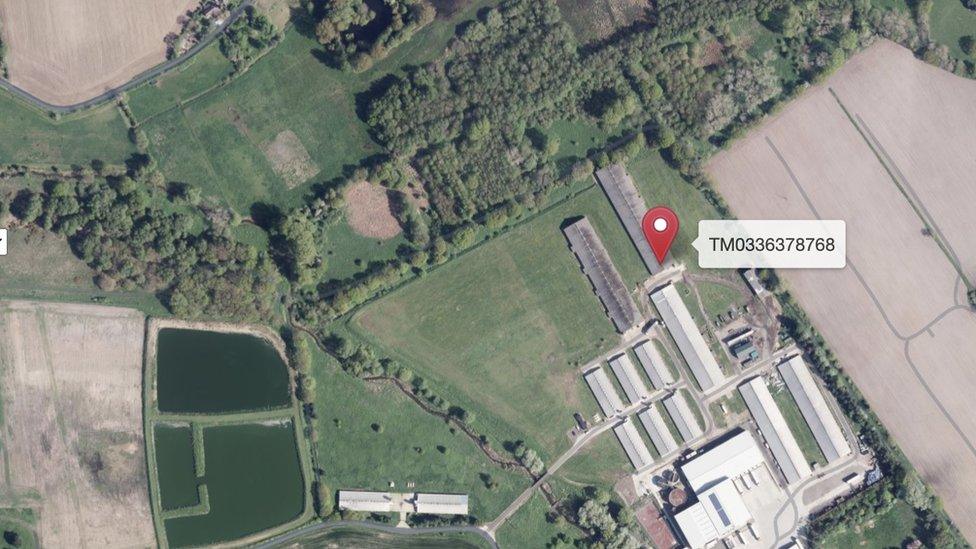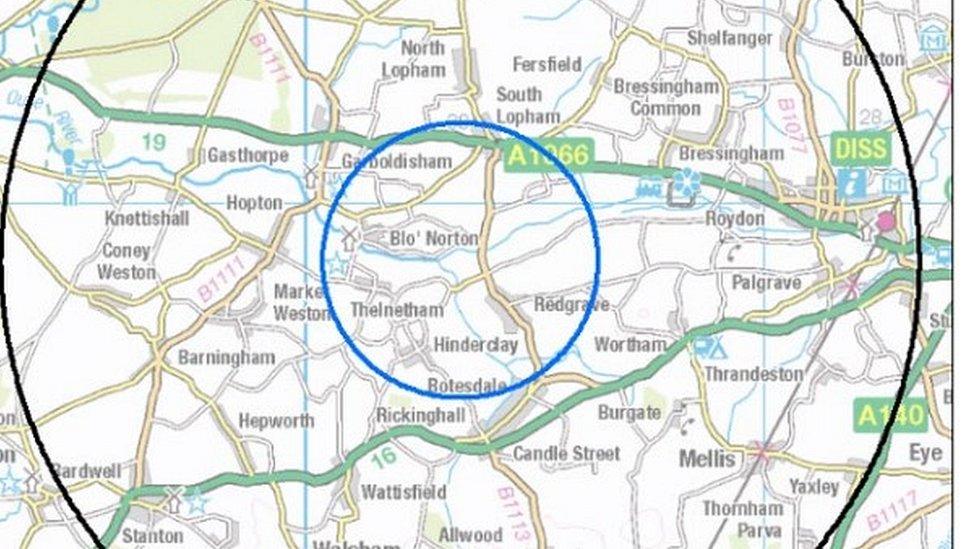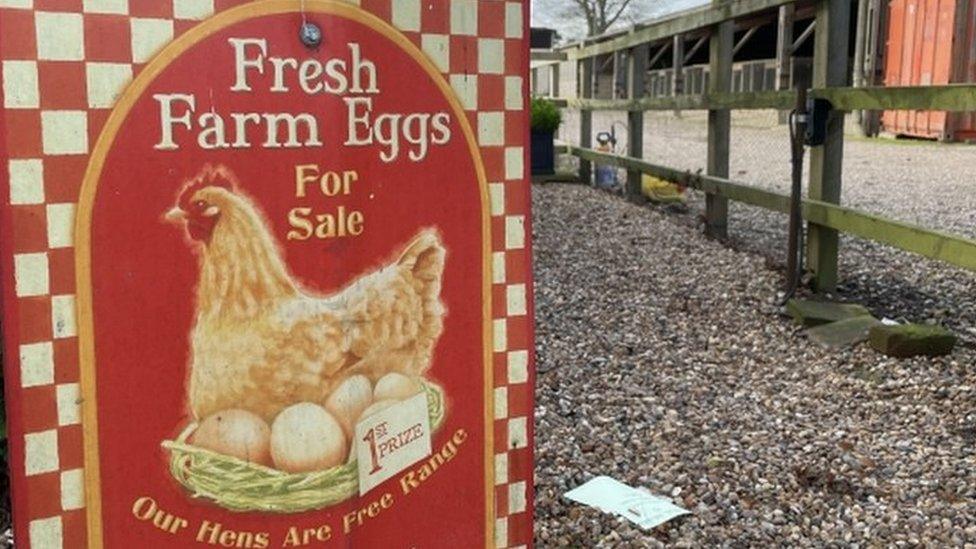Bird flu outbreak found at duck producers in Redgrave, Suffolk
- Published

The H5N1 bird flu virus has been found in ducks at Gressingham Foods, near Redgrave
A further outbreak of bird flu has been found in East Anglia, according to the Department of Environment, Food and Rural Affairs (Defra).
The H5N1 strain has been found at the Gressingham Foods site near Redgrave, on the Suffolk/Norfolk border.
The outbreak means 35,000 ducks will have to be culled.
The latest outbreak - the eighth in the region - comes just four days after bird flu was discovered near Elmswell, north of Stowmarket.
Gressingham Foods said the virus had been found in one of its sheds on Tuesday.
"Unfortunately a Green Label duck farm was confirmed as having highly pathogenic avian influenza H5N1", the company said in a statement.
It also said that over the weekend it had been made aware of a case of bird flu locally and had taken "every precaution and there had been no movement of birds or other material off the premises".
Gressingham Foods said it was now continuing to work with the authorities to contain any spread.

Defra found an outbreak of avian flu at the commercial premises of Gressingham Foods on the Suffolk/Norfolk border
The H5N1 influenza virus is highly contagious and spreads easily within poultry flocks.
An Avian Influenza Prevention Zone (AIPZ), external requiring all bird owners (including those with backyard chickens) to keep their flocks indoors applies across the UK.
People who own birds in villages near to the latest outbreak, including Thelnetham and Botesdale, will now have to take extra measures to keep their birds away from contagion.
Defra officials have set up a 3km (2 mile) protection zone and 10km (6 mile) surveillance zone around the premises.

Defra released this map showing the protection zone (black circle) and area of outbreak (blue inner circle)
Outbreaks of the disease have have also been found recently in Essex and Norfolk as well as Suffolk, and in January the BBC estimated that 1m birds had been culled in Lincolnshire alone to stop the spread of the virus.
On its website Defra said, "The UK is tackling its largest ever outbreak of bird flu with nearly 100 cases confirmed across the country since the start of November."
It has warned that wild birds migrating to the UK from mainland Europe during the winter months and other wildlife can spread the disease.

Find BBC News: East of England on Facebook, external, Instagram, external and Twitter, external. If you have a story suggestion email eastofenglandnews@bbc.co.uk, external
Related topics
- Published10 December 2021
